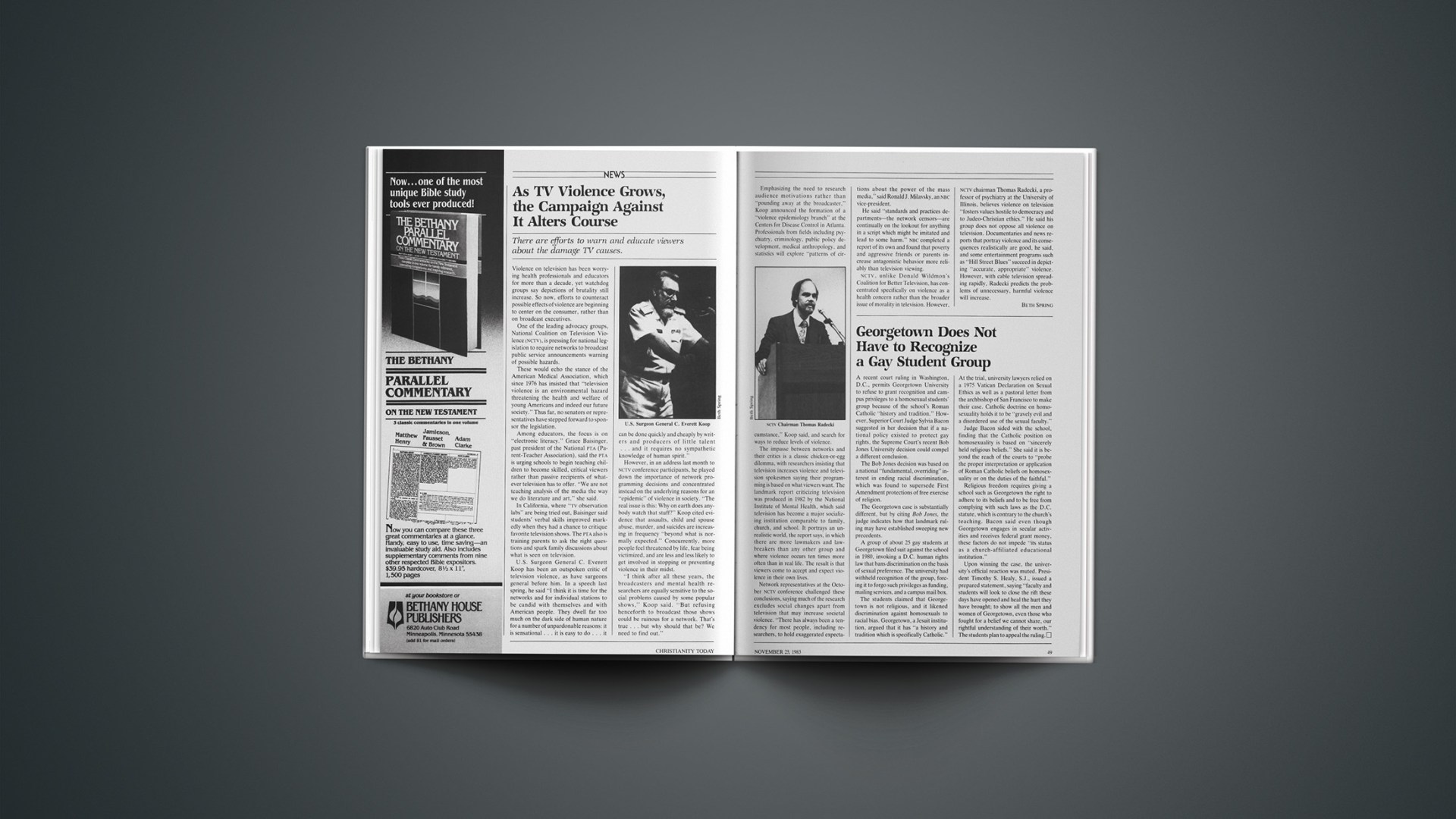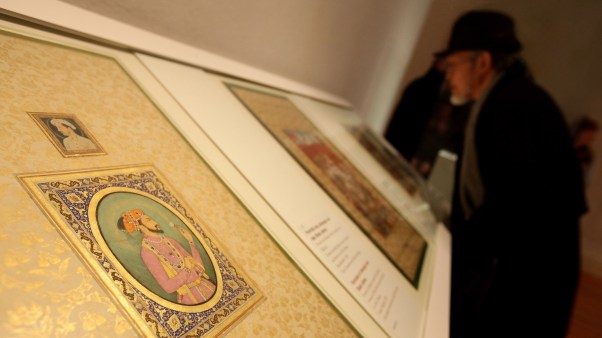A recent court ruling in Washington, D.C., permits Georgetown University to refuse to grant recognition and campus privileges to a homosexual students’ group because of the school’s Roman Catholic “history and tradition.” However, Superior Court Judge Sylvia Bacon suggested in her decision that if a national policy existed to protect gay rights, the Supreme Court’s recent Bob Jones University decision could compel a different conclusion.
The Bob Jones decision was based on a national “fundamental, overriding” interest in ending racial discrimination, which was found to supersede First Amendment protections of free exercise of religion.
The Georgetown case is substantially different, but by citing Bob Jones, the judge indicates how that landmark ruling may have established sweeping new precedents.
A group of about 25 gay students at Georgetown filed suit against the school in 1980, invoking a D.C. human rights law that bans discrimination on the basis of sexual preference. The university had withheld recognition of the group, forcing it to forgo such privileges as funding, mailing services, and a campus mail box.
The students claimed that Georgetown is not religious, and it likened discrimination against homosexuals to racial bias. Georgetown, a Jesuit institution, argued that it has “a history and tradition which is specifically Catholic.” At the trial, university lawyers relied on a 1975 Vatican Declaration on Sexual Ethics as well as a pastoral letter from the archbishop of San Francisco to make their case. Catholic doctrine on homosexuality holds it to be “gravely evil and a disordered use of the sexual faculty.”
Judge Bacon sided with the school, finding that the Catholic position on homosexuality is based on “sincerely held religious beliefs.” She said it is beyond the reach of the courts to “probe the proper interpretation or application of Roman Catholic beliefs on homosexuality or on the duties of the faithful.”
Religious freedom requires giving a school such as Georgetown the right to adhere to its beliefs and to be free from complying with such laws as the D.C. statute, which is contrary to the church’s teaching. Bacon said even though Georgetown engages in secular activities and receives federal grant money, these factors do not impede “its status as a church-affiliated educational institution.”
Upon winning the case, the university’s official reaction was muted. President Timothy S. Healy, S.J., issued a prepared statement, saying “faculty and students will look to close the rift these days have opened and heal the hurt they have brought; to show all the men and women of Georgetown, even those who fought for a belief we cannot share, our rightful understanding of their worth.” The students plan to appeal the ruling.










